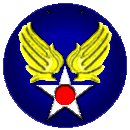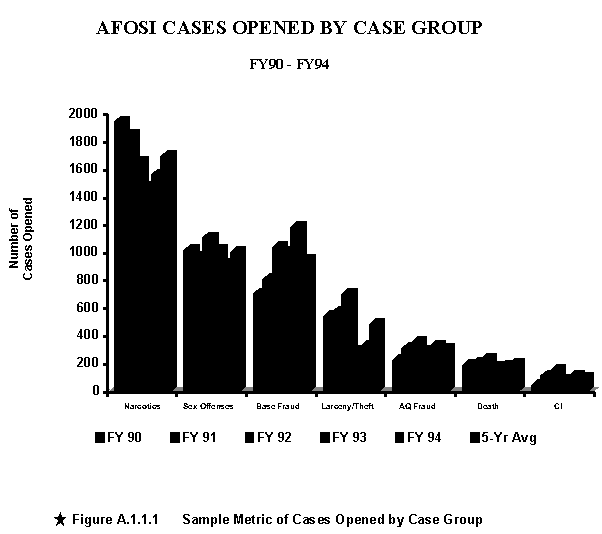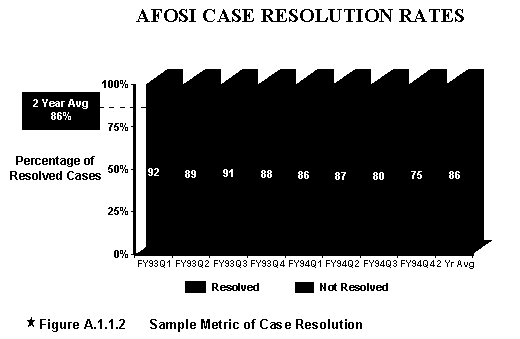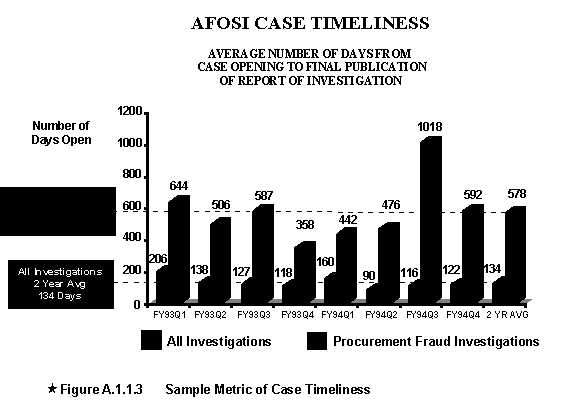 Air Force
Air Force Intelligence and Security Doctrine
 Air Force
Air Force Special Investigations
CRIMINAL INVESTIGATIONS AND COUNTERINTELLIGENCE
____________________________________________________________________________________________________
Criminal activity and intelligence operations against the Air Force threaten national security. To secure resources and personnel, the Air Force must provide security commensurate with the importance of the assets. When breached or compromised, the Air Force must thoroughly investigate criminal allegations and intelligence threats and refer them to appropriate authorities for action. The Air Force Office of Special Investigations (AFOSI) is the only Air Force organization authorized to conduct counterintelligence activities and operations. The following policies enable the Air Force to meet these responsibilities. Laws and directives impose disciplinary action on Air Force members and civilian employees who do not comply with these policies.
SUMMARY OF REVISIONS
This revision clarifies the Air Force Office of Special Investigations' role as the sole Air Force agency authorized to conduct counterintelligence activities and operations (purpose paragraph);. specifies resources accessible to AFOSI special agents (paragraph 5.2); clarifies coordination required prior to reassignment of persons under investigation (paragraph 7.5.3); and includes new metrics and charts (attachment 1). A indicates revisions from the previous edition.
1. When people are under a clear and direct threat, the Air Force will protect them. The Air Force also protects leaders or official guests who undergo unique and significant risks or who are particularly vulnerable because of the mission environment.
1.1. The Air Force will support the US Secret Service in executing its statutory protective responsibilities.
2. If a crime is committed by Air Force personnel or on Air Force installations, or if it is otherwise of interest to the Air Force, the Air Force will thoroughly investigate and refer it to appropriate authorities for action.
2.1. The Posse Comitatus Act, Title 18, United States Code, Section 1385, Use of Army and Air Force as Posse Comitatus, and Title 10, United States Code, Sections 371 through 378, Military Cooperation With Civilian Law Enforcement Officials, restrict military cooperation with, and participation in, civilian law enforcement activities or agencies.
3. The Air Force will conduct counterintelligence activities and counterespionage operations to detect and neutralize threats against the Air Force as authorized by Executive Order 12333 and other directives.
4. The Air Force may use technical services (video surveillance and interception of oral and wire communications), polygraph examinations, and hypnosis to support criminal investigations, counterintelligence, and security matters.
5. Special agents accredited by the Air Force to perform investigations and with proper credentials may:
5.1. Enter any Air Force installation or off limits area unless Air Force security regulations state otherwise.
5.2. Access all Air Force records, property and people.
5.3. Carry concealed or unconcealed US Government-issued firearms for which they are trained and qualified.
5.4. Use all lawful and approved investigative procedures.
5.5. Wear civilian clothing while investigating.
6. Within limits set by the Congress, the Air Force will fund emergency and extraordinary expenses to get information or fulfill other requirements for counterintelligence and investigations. Annually, the Air Force Audit Agency will audit these contingency funds.
7. The following responsibilities and authorities are established:
7.1. Only the Secretary of the Air Force (SECAF) through the Air Force Inspector General (SAF/IG) may direct the AFOSI to delay, suspend, or terminate an investigation (Department of Defense DoD Instruction 5505.3) unless the investigation is conducted at the request of the DOD Inspector General (DOD/IG). In that case, DOD/IG may direct AFOSI to delay, suspend, or terminate an investigation.
7.1.1. Commanders objecting to an AFOSI investigation will report circumstances via chain of command to SECAF for resolution. Facts in all cases and SECAF's decision will be reported to DOD/IG.
7.2. The General Counsel of the Air Force or, in that person's absence, the Deputy General Counsel of the Air Force approves or disapproves all Air Force requests for consensual interception of wire or oral communications. This official also reviews all requests for nonconsensual interception of wire and oral communications.
7.3. The Judge Advocate General of the Air Force chooses military judges to receive applications for intercept authorization orders and decides whether to issue them. These judges are certified according to Article 26(b) of the Uniform Code of Military Justice (UCMJ), Title 10, United States Code, Section 826(b). Military judges may issue these orders only for interceptions that occur abroad and that are targeted against persons subject to the UCMJ.
7.4. The Commander, AFOSI:
7.4.1. Conducts criminal investigations, including violations of the UCMJ or other US laws and statutes. The Commander of AFOSI also conducts drug investigations on persons not subject to the UCMJ after the appropriate prosecutor concurs and the servicing staff judge advocate (SJA) does a legal review.
7.4.2. Assesses threats and develops programs to counter them, provides protection, allocates resources, develops awareness briefings, and establishes classification guidelines for counterintelligence information.
7.4.3. Establishes controls and rules for technical surveillance, polygraph examinations, and forensic hypnosis.
7.4.4. Accredits special agents and issues them badges and credentials.
7.4.5. When delegated, manages the C-funds program and is accountable for spending.
7.5. Air Force commanders:
7.5.1. Refer to AFOSI all criminal matters and offenses for which AFOSI is responsible.
7.5.2. Ensure their personnel receive required Counterintelligence Awareness Briefings and report required counterintelligence information.
7.5.3. Do not reassign or take any other official action against someone undergoing an AFOSI investigation before coordinating with AFOSI and the servicing SJA.
7.5.4. Grant access to AFOSI reports only to people who need the information for their official duties.
7.5.5. Establish procedures at installations for handling personnel, medical, and other administrative records of special agents to prevent unauthorized disclosure of their rank.
8. See attachment 1 for measures of compliance with this directive.
9. See attachment 2 for a listing of implementing directives.
10. See attachment 3 for a listing of related publications.
A1.2. SAF/IGV uses data from the RCS: SAF/IGV(Q)9236, Criminal Investigations and Counterintelligence Report, which AFOSI compiles from the Crime and Counterintelligence Terrorism Information System. AFOSI provides SAF/IGV quarterly data no later than 15 calendar days after each calendar quarter and continues reporting during emergencies.



Uniform Code of Military Justice, Article 26(b) with Changes 1 through 5, Military Judge of a General or Special Court Martial, 1984
Presidential Decision Directive, National Security Council-12, Security Awareness and Reporting of Foreign Contacts, August 5, 1993
Executive Order 12333, US Intelligence Activity, December 4, 1991
Title 44, United States Code, Section 3101, Records Management by Agency Heads, General Duty, October 22, 1968
DoD Directive 2000.12, DoD Combating Terrorism Program, August 27, 1990
DoD Instruction 5030.34, Agreement Between the United States Secret Service and the Department of Defense Concerning Protection of the President and Other Officials, September 17, 1986
DoD Directive 5200.24, Interception of Wire and Oral Communications for Law Enforcement Purposes, April 3, 1978
DoD Directive 5210.48, DoD Polygraph Program, December 24, 1984
DoD Directive 5240.2, DoD Counterintelligence, June 6, 1983
DoD Directive 5240.5, DoD Technical Surveillance Countermeasures (TSCM) Survey Program, May 23k 1984
DoD Directive 5240.6, Counterintelligence Awareness and Briefing Program, February 26, 1986
DoD Directive 5505.2, Criminal Investigations of Fraud Offenses, July 16, 1990
DoD Directive 5505.3, Initiation of Investigation by Military Criminal Investigative Organizations, July 11, 1986
DoD Directive 5525.7, Implementation of the Memorandum of Understanding Between the Department of Justice and the Department of Defense Relating to the Investigation and Prosecution of Certain Crimes, January 22, 1985
Air Force Mission Directive (AFMD) 37, Air Force Office of Special Investigations
Air Force Instruction (AFI) 71-101, Volume 1, Criminal Investigations, Counterintelligence, and Protective Service Matters
AFI 71-101, Volume 2, Criminal Investigations, Counterintelligence, and Protective Service Matters